On May 23, a 10-storey commercial building collapsed in Abadan, killing scores of people. Seventeen days later, on the last day of debris-clearing at site of the Metropol disaster, city governor Ehsan Abbaspour announced that 43 people had died in the disaster and 38 were injured. The last body pulled from under the rubble was that of a man named Abdolamir Behbahani.
There are major discrepancies between the official figures on how many workers were inside the part-finished building at the time of the disaster, and the numbers cited by unofficial sources. Many of them are understood to have come from Minoo Shahr, a small island near Abadan. The bodies that found were buried in Joraf Cemetery.
A resident of Abadan went to the island to speak to people there about what had happened, and to see if they required any material support. “When I got there,” they told IranWire, “I stopped by a little fruit-seller’s stand and after exchanging greetings, I showed him the names of the workers who had lost their lives. I asked him whether he knew them. He pointed to an alley opposite and said four of them had lived there. He tapped on their names: Morteza Ebrahimi, Karim Bandari, Amin Bahranian and Hashem Bahranian.”
Grief-Stricken Families Struggling to Get By
In one of the pictures taken during the visit, a white-haired man with a white beard is seen sitting in front of a cement house. The black of his shirt contrasts sharply in turn with the red shirt of the little girl he is holding. The rusty door to the house is covered with a threadbare blanket, and the walls are drab and grey. The man was Karim Bandari’s father, the girl his four-year-old daughter. He also left behind a baby son.”

“All the houses in the alley were old and dilapidated,” the source said. “I asked around until I reached Karim Bandari’s home. A sad old man in black was sitting there. I asked if he could tell me a little about their situation – perhaps I could help. ‘God bless you!’ he said. ‘Karim and I both worked in that building. But that day I hadn’t gone to work. I lost my job after the collapse.’”
The man then explained that Karim and other workers on the site were neither insured nor on a regular salary. There is no pension or social security money on the way to Karim’s widow. “He said their electricity wasn’t working properly and the electric company had ordered them to pay 900,000 tomans [$28 at open market rates] to fix the problem. And the gas leaked and went out all the time. ‘This is all we want,’ he said. ‘Bless you!’”
Karim Bandari’s family are far from alone in now being in a desperate situation. In another picture, in a different alley, the walls are covered with black mourning banners and pictures of the young men who used to live here. The alley is filled not only with grief, but with poverty and deprivation.
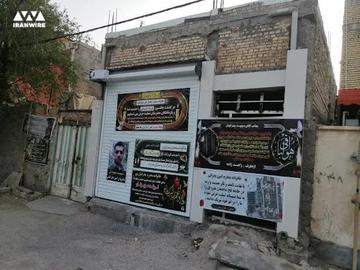
“This is the home of Amin Bahranian,” the visitor said of the second image. “A young man of around 18 was outside, in the heat of the high noon, with a small child in a stroller. I asked him if he knew the Bahranian Family. ‘I’m Amin’s younger brother and this is his son,’ he said. ‘He’s so restless I brought him out here.”
Amin, he told IranWire, was one of two brothers killed on May 23; his brother Hashem was also among the dead. The pair had married two sisters, and Amin also had a 10-year-old daughter. His younger brother who spoke to us also worked at the Metropol building and like Karim Bandari’s father, is now out of work. Their father is retired and receives a monthly pension of 3.8 million tomans [$119]. Amin’s family are so stretched, his brother said, that as yet they had not been able to afford a gravestone for him.
“How can we help, I asked Hashem’s father?” the source told IranWire. “He said he’d ask his daughters-in-law. When he came back, he said they needed a washing machine and a gas oven. My God; these are things we all have in our homes. Fortunately with the help of a few benefactors we managed to acquire some of the appliances, and a headstone for Amin Bahramian.”
Grief Takes Second Place
Morteza Ebrahimi was a fit, healthy young man had worked for three to four years on different sites owned by Abdolbaghi Holdings, the developer and owner of Metropol complex. “Outside Morteza’s home,” the visitor said, “I met his father and two other men in black who were digging a sceptic tank. I asked the father about his situation; he said both he and Morteza had worked at Metropol. Now Morteza’s wife and four children were living with him, and the expenses were breaking their backs.”
Like the families of other workers who died without insurance, they are in dire need: “You know what pains me?” the source said. “Making ends meet is so excruciatingly difficult for these families that, for this old man, it pushed the pain of losing his son to second place. The difficulty of providing for the children was crushing him more than the sorrow at his son’s untimely death. There wasn’t even a water heater in Morteza Ebrahimi’s home.”
The Family of Taregh Ghayem
One of the first to be pulled from the wreckage of Metropol’s Tower 2 was that of a worker named Taregh Ghayem, who was still alive but later died in hospital. He had also worked for Abdolbaghi Holdings for years without insurance, and for several months he had downed tools in protest against this basic legal necessity. In April he had returned to work, having been promised that this would change.
“An old man with a bent back and a white beard was sitting in front of Taregh’s home, gazing at a half-finished building across the alley,” the source said. “The moment I gave my condolences he burst into to tears. ‘I bought this land for Taregh and we were building him a home,’ he said. ‘Now I just come here and look at it. I haven’t got the strength to finish it.’
“Taregh’s father is truly heartbroken. He was found early on because when the disaster struck he had only just arrived, and hadn’t yet gone up to the floor he was working on.”
Unlike others, Taregh’s father said he was not in need: “When I asked him if he needed any help, he said ‘I want no help. Thank God, I am a construction worker myself.’ But when I asked a few others about the family, they said that they had no air conditioning, even in this weather.
“All the families are waiting for promises made by officials to materialize. In the early days after the disaster they gave the families cash cards, each worth two million tomans [$63]. They were told the money was to buy gravestones for the workers who had lost their lives. But these families are so short of money that they spent it all just on the burials and funeral rites. Because of this, many of them still do not have a marked grave.”
Recently Omid Hashemi, head of the Abadan Construction Workers Trade Association, said that of the “around 500” workers deployed on the Metropol site, “70 percent had no insurance. They were waiting for their insurance when the building collapsed.”
visit the accountability section
In this section of Iran Wire, you can contact the officials and launch your campaign for various problems




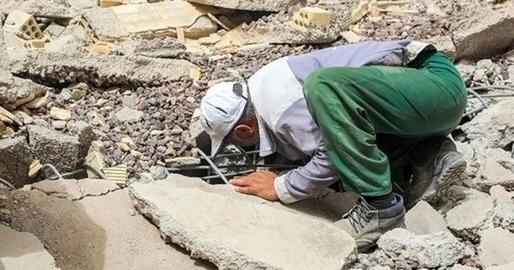
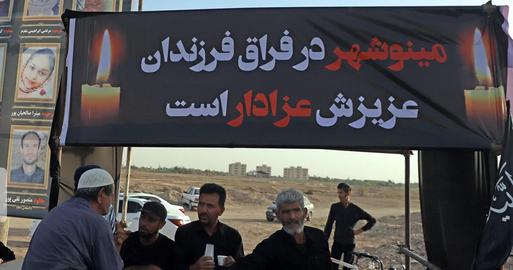

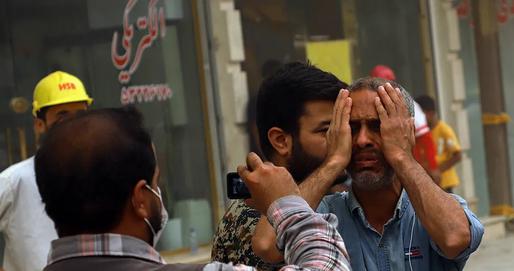
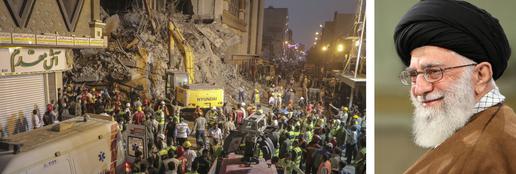
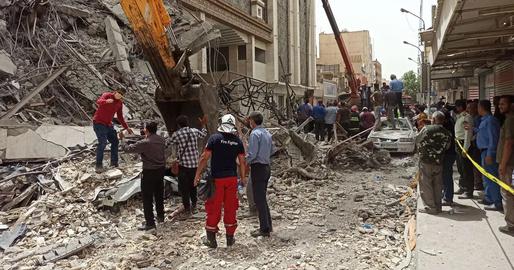
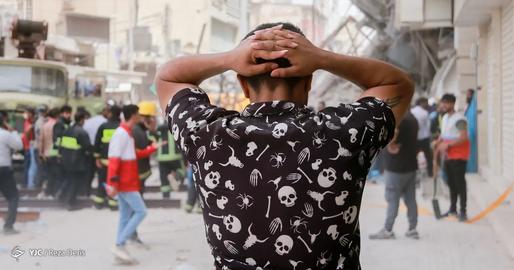

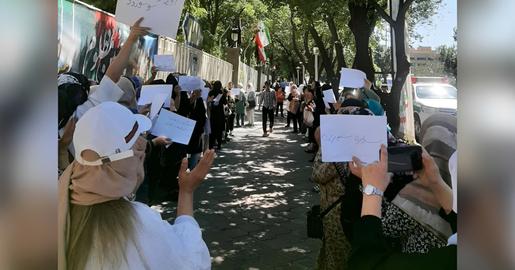








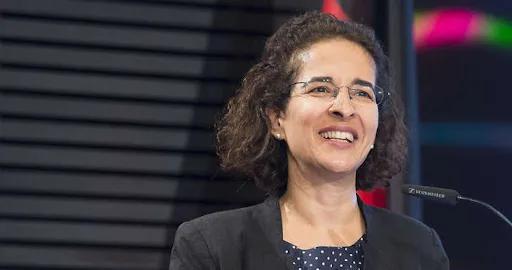
comments